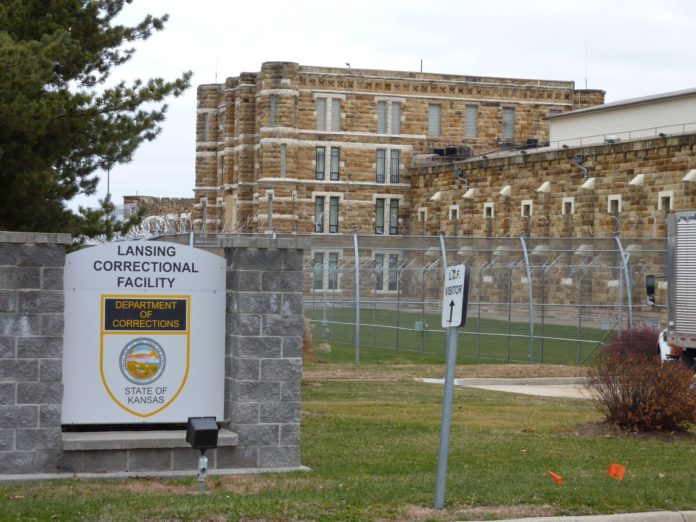The Kansas Ethics Commission on Wednesday fined former state Corrections Secretary Joe Norwood $5,000 for violating state ethics law by taking a job with a state prison contractor hired to build a new prison in Lansing.
Norwood went to work for CoreCivic in violation of a law barring state officials from taking a job at a company they did business with as a state employee.
State ethics law bars state employees from going to work for a contractor within two years of leaving their job or two years from the end of the contract, whichever is sooner.
Ethics officials described it as a “pretty significant violation,” especially since Norwood’s consulting company had $100,000 in taxable income in the last year.
“These violations are rare and should be treated as serious offenses,” said Mark Skoglund, executive director of the Kansas Ethics Commission.
“The revolving-door issues speak to a central concern about people’s ability to have trust in government, that when people in state government are part of a contracting process that they do not leave state government to go work for that entity,” Skoglund said.
“This is sort of a fundamental ethics question and, I think, one that we should treat accordingly,” he said.
The $5,000 fine was the maximum the Ethics Commission could levy for a first offense under state law.
The ethics complaint focused on an amendment to the lease-purchase agreement with CoreCivic for the reconstructed Lansing prison that Norwood signed June 1, 2018, less than a year before going to work for the company.
A few months before the amendment was signed, Norwood had signed a lease-purchase agreement with CoreCivic to reconstruct the Lansing facility for $362 million over 20 years.
Under the contract amendment, CoreCivic was allowed to purchase $3 million in property for the Lansing prison on the state’s behalf.
There was no evidence that CoreCivic profited from the purchase or that the state overpaid for the property.
Norwood told the commission that the amendment did not change the value of the overall contract with CoreCivic.
The contract amendment was signed June 1, 2018, about six months before Norwood left the agency when Laura Kelly was sworn in as governor.
Norwood formed his consulting company on Feb. 13, 2019, and went to work for CoreCivic on March 1, 2019. He stopped consulting for CoreCivic on March 1, 2020.
Norwood’s lawyer argued that the violation was technical in nature, saying his client wasn’t involved in the direct negotiations with the amendment to the contract.
He said Norwood’s signature on the amendement to the contract was more of an administrative function.
“It didn’t really occur to him that simply signing a contract would lead to problems … because he wasn’t involved in the actual negotiations,” Randy Debenham told the commission on a video conference call.
While Norwood signed the contract, he wasn’t really involved in the making of that contract under state law, Debenham said.
Debenham acknowledged that a previous ethics opinion said that signing a contract means being involving in the making of the contract.
He suggested that the law should be changed to distinguish between executing a contract and making a contract.
Debenham said there was no evidence presented that Norwood knowingly violated the ethics law and no indication that the prison contractor made money or the state lost money on the deal. He asked for an admonishment of his client.
Norwood’s consulting agreement was with CoreCivic of Tennessee, which is legally separate from CoreCivic of Kansas, which is rebuilding the Lansing prison.
However, ethics officials said both entities were part of the same corporate structure, noting that CoreCivic of Tennessee negotiated the lease with the state.
“It was not until the point at which that particular lease was signed that CoreCivic of Kansas was, in fact, created and was signatory to the final contract,” said Brett Berry, the Ethics Commission’s general counsel.
“It’s like a rose by any other name.”
The Lansing prison contract, approved just before Gov. Sam Brownback left office, was viewed skeptically by lawmakers who questioned whether the lease-purchase arrangement was the best deal for the state.
Under the terms of the agreement, the state would make a lease payment of about $15 million in the first year with increases of 1.94% annually.
The total 20-year cost will be $362 million before the state assumes ownership of the 2,400-bed prison.
The Brownback administration had estimated that the new prison would need less staffing, saving the state enough money to make the yearly lease payments.
However, new Gov. Kelly’s interim corrections secretary last year questioned whether the design of the new Lansing prison would yield significant savings for the state.
In an interview with The Associated Press, Roger Werholtz said the new prison would be more efficient than the existing facility, but he was dubious about whether it would save as much as projected.
Kelly — a state senator at the time the prison contract was approved — told The AP she thought the state was “hoodwinked” into hiring CoreCivic into building the new prison on the premise that it would save money by requiring fewer employees.















